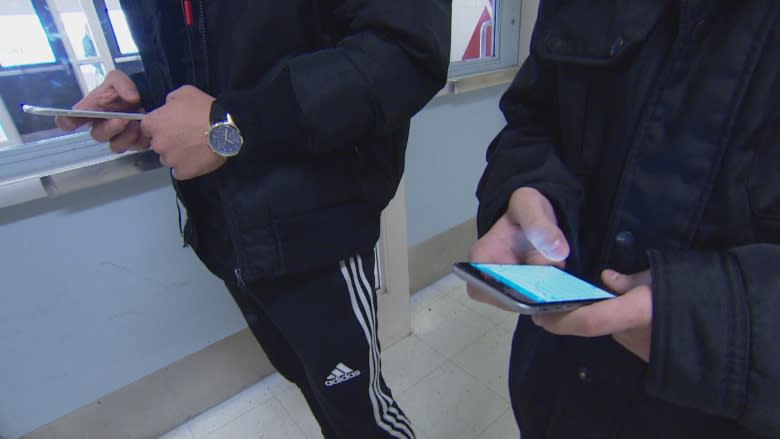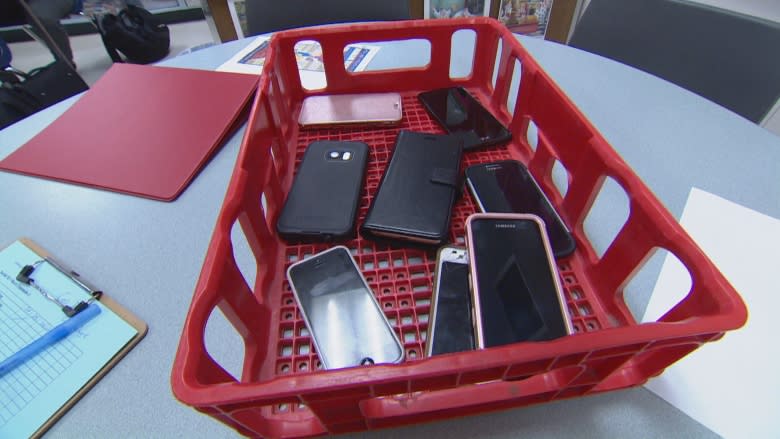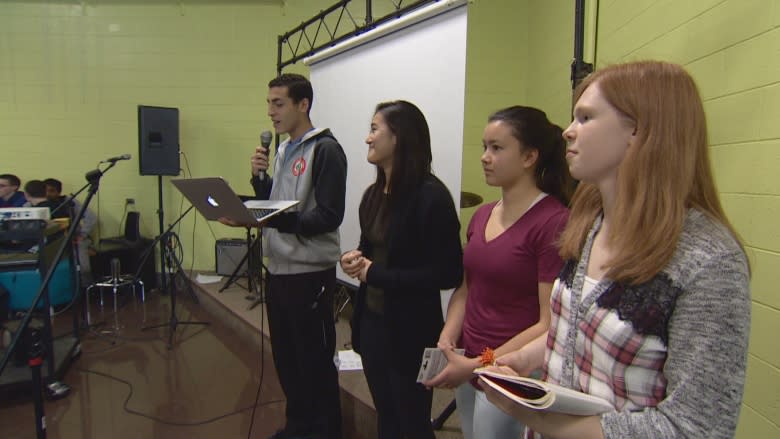Some Edmonton high school students shelve their cellphones ... for now
Habits are hard to break and addictions tough to kick but students at Jasper Place High School are trying to curb their cellphone use, for at least a week.
In a new Technology Abstinence Challenge, running from April 18-27, students — potentially 2,500 of them — are being asked to leave phones in their lockers or at the front of the classroom.
"I feel like students now, they're kind of addicted to their phones," said Erin Watchman, who is in Grade 12. "They reach for it out of habit. Hopefully, this challenge will help them realize what is wrong with it."
A survey found the majority of students admitted to being distracted, and 60 per cent said they wanted help in curbing their cellphone use in class.
"Without a doubt, I think it is an addiction for some of our students," said Kerry Maguire, a teacher for nine years and head of the student leadership department at Jasper High.
"And it's not just about youth. We have lots of adults in our society who are addicted to technology."
Maguire said the expectation to respond immediately drives some of the behaviour.
"I'll see them on their phone and make a comment to them, and they say, 'Well, it's my mom. She's asking me a question.' And that's in the middle of class."
Students get a checkmark from the teacher for every class where they leave their cellphones behind.
Their names are put into a draw for prizes, including gift certificates to restaurants and what's being dubbed "get into nature prizes" from sports stores, encouraging students to go outside and be active.
Julia Dalman, a community liaison with the school, doesn't think a blanket policy banning cellphones from classrooms will work.
"I think it's a lot more effective to actually include students in the conversation about how they use their phones and how they use technology in classrooms."
The end goal, Maguire said, is to help students learn.
"And we know when they're on their technology that that's not always happening, and so it's frustrating."
At the end of the challenge, students will be asked to report how the abstinence challenge worked for them.
"I hope that the students are able to be honest with themselves after this, and see the benefit that distancing themselves from their phones has," Watchman said.
The school, Dalman said, hopes to see an improvement in how students retain information.
"Did they see a difference in the engagement that they felt in classes, was it easier to actually recall the lesson that they've learned?"
The grand prize at the end of the challenge, ironically, is an iPad — a reward, staff and students say, for learning how to manage the omnipresent technology.










